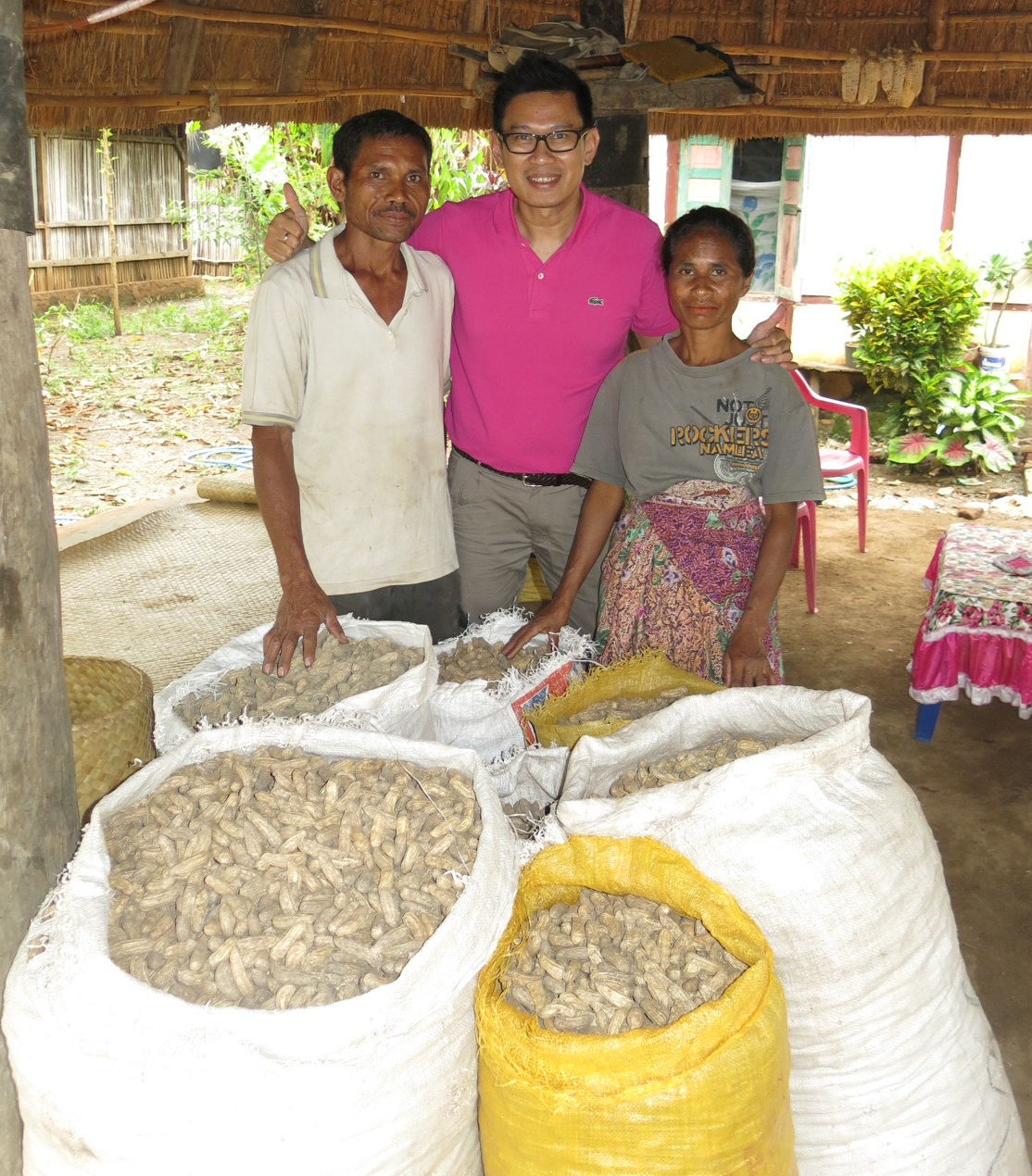At first glance, there's nothing special about Kefamenanu. Arid and dusty, it's a 5-hour drive from Kupang, the capital of the East Nusa Tenggara province in eastern Indonesia. Trees and shrubs fill our view, with the occasional dry river beds and sand dunes breaking the panorama. Initially we were hesitant to explore this area, but little did we know that this seemingly barren region turns out to be a heaven for the cultivation of a very unique peanut.
Behold... the striped peanut. This isn't your ordinary peanut. With its skin covered with exotic mottled and striped motif, it's definitely 'sexier' than its plain brown counterpart. In addition to its unique appearance, the striped peanut is also bigger in size than a normal peanut. It's also sweeter and creamier in taste. Production-wise, it continues to amaze. Just imagine: a 1-kg seed can yield up to 30-kg in crop, which is a productivity of 3 ton/hectare.
There are five special regions in Kefamenanu that agronomically have great soil qualities for peanut cultivation. This area has been been well cultivated by very capable farmers who also implement organic farming principles. This fact is further validated with an organic product certification from IMO (Institute for Marketecology — a leading organic certification issuer).
Of course, PT Profil Mitra Abadi (PMA) does not accomplish this alone. PMA partners with local farmers who also highly value the sustainability of their environment. The local farmers cooperative in Kefamenanu already has its own cultivation culture of not using any artificial/chemical compounds, but instead preferring more natural materials. That's why it was very easy for them to adopt the organic farming methods. This really goes hand-in-hand with PMA's own ethos of "collaborating with nature".
Kefamenanu also has a distinctive social culture, which is evident from various local arts and crafts that have been preserved and are still practiced in this community, the majority of which are farmers. One of them is the art of cloth weaving. The fabrics are woven from natural fibres that are readily available from the surrounding area. This has created a unique combination between farming and local crafts that are birthed from this farmer-weaver community.
With one development already in focus, it's also important for PMA to expand it to include training and development for the people of Kefamenanu with the hope of producing more mutually-beneficial partnerships — especially in regards to the organic striped peanuts. One of the ways to accomplish this is to implement an integrated system called ICS (Internal Control System). ICS is a method in organizing organic-farming systems so that the human resource is also developed along with the natural resources. Thus, by developing organic farming, PMA indirectly supports the advancement of underdeveloped areas.
In our marketing strategy, PMA is able to accommodate all the harvested crops according to the standards that have been put in place. PMA is committed to give the best to the customers. The peanut crop is processed to become several varieties of snacks — from whole striped peanuts, whole peanuts, split peanuts and shell-on peanuts. All the processing is mostly done by hand by skilled local workforce, minimizing the use of machinery. This is done to preserve the peanut's natural taste. Not only that, but PMA has earned the HACCP (Hazard Analysis and Critical Control Points) Certificate in our efforts to ensure food safety by implementing HACCP control measures in every step of processing.
PMA is a result-oriented company that focuses on process. It's our responsibility to continue to develop both the human and natural resources, because our philosophy is "organic is our soul, trustworthiness is our backbone, the local social-culture is our lungs, and the customer is our blood."








